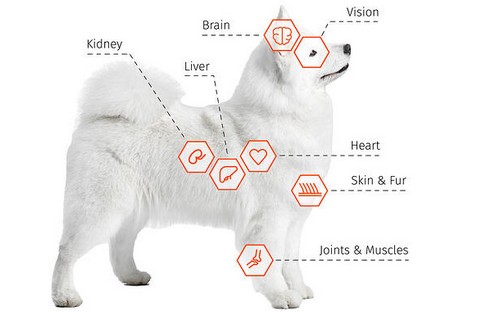So, what nutritional needs do pets have during the warm or even hot months? Do we have to change their diet on hot days? And what is most important to keep in mind not only during hot temperatures but also all year long?
Your pet's appetite may change during the summer
Even though there may not be many studies on how seasons affect cats' and dogs' appetites, there are a few that confirm appetite might decrease during the summer. Just like we want a specific type of food during cold months and another in the summer, the same can happen to pets.
According to this study made on 38 cats, it seems that our furry family members eat the most between October and February. And they eat about 15% less food from June to August.
Now, dogs that are more into the outdoors or involved in high-intensity sports need more calories to help them generate heat during the winter months. To be more accurate, they need around 7.5% more calories for every 10-degree drop in the temperature. And the opposite applies in the warmer season, which means they tend to need about 7.5 percent fewer calories every time the temperature increases by 10 degrees.
{{editor}}
Do I need to change my pet's diet?
If your pet is on the right diet, then there's no need to change it during the summer months. In general, you should keep your pet's diet constant all year long. Of course, if your dog or cat has a special health condition, such as allergies, obesity or arthritis, then you need to make some dietary changes, even though is summer.
If that's the case, then don't change their food all of a sudden, instead add the new pet food gradually. Sudden changes can lead to other health issues, such as vomiting and diarrhea. So, there is no need to change your pet's diet completely in the summer, as long as the current one is a balanced diet that gives them all the nutrients they need all year long.
It's important to choose the right diet for your pet
You should always pay attention to your pet's diet, whether summer or winter. As the studies showed, daylight and temperature have been found to have an effect on your pets' metabolism and the amount of food they need to stay well.
But what is the right diet? Well, the right diet is a balanced one that includes all the nutrients and also satisfies their water needs. For that reason, you should opt for a high-quality healthy pet food that has specifically been made with your pet's nutritional needs in mind.
And among those essential nutrients are omega-3s. As dogs (and cats) can't produce these essential fatty acids in their bodies, they need an effective diet that gives them a daily dose of omega-3s all year round.
Here are some of the health benefits of omega-3s and choline for pets backed by science:

That's only possible if you choose pet food that offers a balanced diet of omega-3s and omega-6s. During summer (or any season), you can also give your dog delicious treats with omega-3 fatty acids.
Water is essential
Water is vital no matter the season. But especially during those hot days, pets need to have plenty of fresh water available all the time. So, make sure to carry water with you during walks in the nature, for example. Or if you're at home, make sure that your pet drinks enough water.
If their body doesn't get enough water, there can be unpleasant consequences. In some cases, dehydration can even lead to overheat (hyperthermia) and low blood pressure. All in all, water is essential to every pet's diet and just a small water loss can be critical to your pet's health.
Krill - a super premium omega-3 source for pets
Krill, this small crustacean that comes from the clean Southern Ocean of Antarctica, it's also a superior source of marine omega-3s EPA and DHA with a distinct advantage. The omega-3s found in krill are bound to phospholipids and this makes them more effectively incorporated into cell membranes.
And this is what makes it extra special as the way these fatty acids are incorporated is essential to obtain the necessary health effects. Recent studies have also shown that the phospholipid-bound omega-3s from krill are more effective in raising omega-3 levels in a dog's body compared to triglyceride-bound omega-3s, like those found in fish oil.
Written by QRILL Pet Team
You could be interested: Category 3 Animal Fat - an important Pet Food Ingredient
Animal Origin
23/10/2023









































